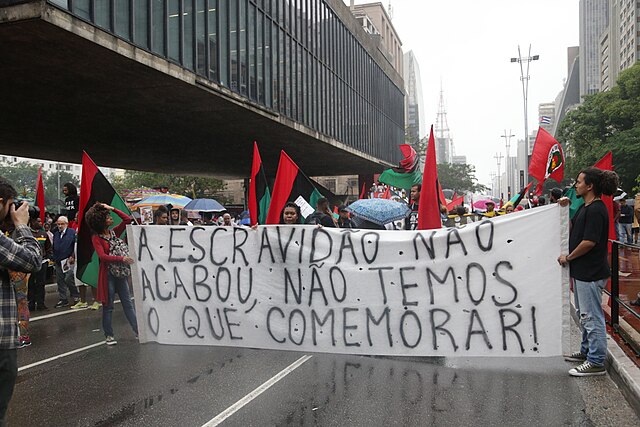The history of abolitionism in Brazil goes back to the first attempt to abolish indigenous slavery in Brazil, in 1611, to its definitive abolition by the Marquis of Pombal, in 1755 and 1758, during the reign of King Joseph I, and to the emancipation movements in the colonial period, particularly the 1798 Bahian Conspiracy, whose plans included the eradication of slavery. After the Independence of Brazil (1822), the discussions on this subject extended throughout the Empire period, acquiring relevance from 1850 onwards and a truly popular character from 1870 onwards, culminating with the signing of the Golden Law on May 13, 1888, which abolished slavery in Brazil.
1888 poster from the Brazilian National Archives collection commemorating the abolition of slavery in Brazil
1880 issue of "Revista Illustrada" talking about the abolitionist campaign.
An outdoor Thanksgiving mass, in Rio de Janeiro, brings together Princess Isabel and about twenty thousand people, and celebrates the abolition, on May 17, 1888.
The 14th São Paulo Black Consciousness March in 2017. The poster reads: "Slavery didn't end, we have nothing to celebrate".
The Lei Áurea, officially Law No. 3,353 of 13 May 1888, is the law that abolished slavery in Brazil. It was signed by Isabel, Princess Imperial of Brazil (1846–1921), an opponent of slavery, who acted as regent to Emperor Pedro II, who was in Europe.
Manuscript of the Lei Áurea Brazilian National Archives
Large open mass celebrated in thanksgiving for the Abolition of Slavery in Brazil, in 1888, in Campo de São Cristóvão. Princess Isabel and Count of Eu are in the left corner, under an imperial tent





